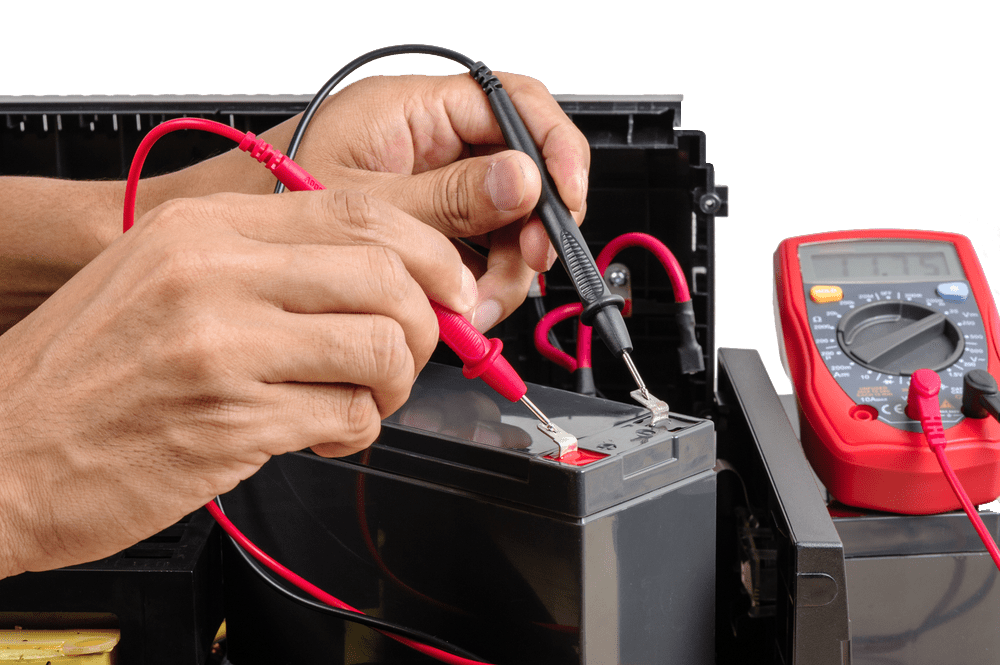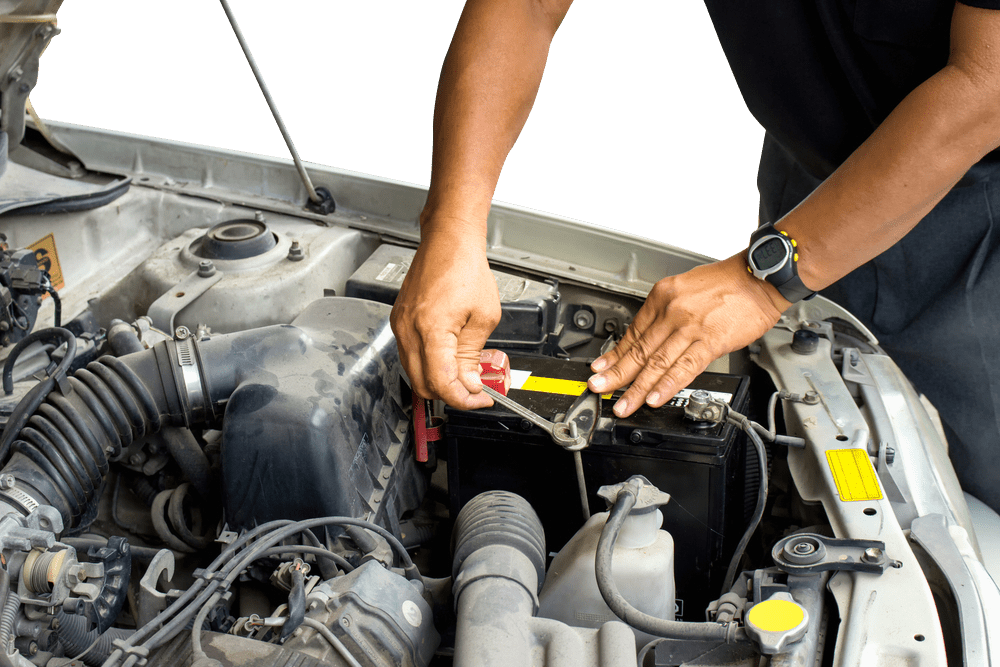- 10 Jul 2025
What is killing my truck battery?

If you’ve ever found yourself stranded with a truck that won’t start, you know the frustration of discovering your truck battery has died. Whether you’re in Sydney or anywhere else, a dead truck battery can disrupt your day, delay important deliveries, or leave you calling for help. Understanding what might be killing your truck battery is essential for preventative maintenance and avoiding unexpected breakdowns. This comprehensive guide explores the various factors that could be draining your truck battery and provides practical solutions to extend your battery’s life, potentially saving you the cost of a new truck battery.
Common Causes of Truck Battery Drainage
1. Age and Natural Degradation
One of the most straightforward reasons behind a dying truck battery is its age. Most truck batteries in Sydney and elsewhere have a lifespan of 3-5 years, depending on usage conditions and maintenance.
Signs of an aging battery include:
- Slow engine cranking
- Dimming headlights
- Electrical components performing sluggishly
- Swollen battery case
- Corroded terminals
When your truck battery reaches the end of its natural life, no amount of maintenance will restore it. At this point, investing in a new truck battery becomes necessary rather than continuing to struggle with one that’s killing your truck’s reliability.
2. Parasitic Drains Killing Your Truck Battery
Parasitic drains are small electrical draws that continue even when your truck is turned off. While modern trucks are designed with some minimal parasitic drain to power memory functions and security systems, excessive drain can be killing your truck battery overnight.
Common sources of parasitic drain include:
- Malfunctioning alternators that continue drawing power
- Interior lights, trunk lights, or glove compartment lights that don’t turn off
- Aftermarket electronics with improper installation
- Faulty electrical components or short circuits
- Alarm systems with excessive power requirements
In Sydney’s truck repair shops, technicians often use an ammeter to measure parasitic drain and identify the specific component that’s killing your truck battery when the vehicle is inactive.

3. Alternator Issues
The alternator is responsible for charging your truck battery while the engine runs. When it fails, your truck essentially runs on battery power alone until the charge depletes.
Signs of alternator problems include:
- Battery warning light on the dashboard
- Dim headlights that brighten when engine speed increases
- Electrical accessories functioning poorly
- Strange noises from the alternator
- Battery that dies shortly after jump-starting
A faulty alternator is a common culprit that’s killing many truck batteries in Sydney and worldwide, often leading truck owners to repeatedly purchase a new truck battery without addressing the root cause.
4. Extreme Weather Conditions
Sydney’s climate is generally moderate, but temperature extremes can still affect your truck battery. In particular, very hot weather can accelerate chemical reactions inside the battery, increasing internal corrosion and water evaporation from the electrolyte.
Impact of weather on truck batteries:
- Heat accelerates internal corrosion and water loss
- Cold weather reduces the battery’s ability to deliver power
- Temperature fluctuations stress battery components
If you’ve noticed your truck battery struggling more during seasonal changes, weather might be contributing to what’s killing your truck battery over time.
5. Short Trips and Infrequent Use
Truck batteries recharge through the alternator while driving. Short trips or leaving a truck sitting for extended periods prevents the battery from fully recharging.
How driving habits affect your truck battery:
- Short trips don’t allow sufficient recharging time
- Long periods of inactivity lead to natural discharge
- Commercial trucks in Sydney that sit idle between jobs may experience this issue more frequently
This pattern of usage is particularly detrimental and could be slowly killing your truck battery without obvious warning signs until it’s too late.
Diagnosing What’s Killing Your Truck Battery
Testing Battery Health
Before assuming you need a new truck battery, it’s worth testing your current one. In Sydney, many auto parts stores offer free battery testing, or you can purchase a multimeter to check it yourself.
Battery testing methods:
- Voltage testing (healthy batteries show 12.6V or more when fully charged)
- Load testing (evaluates performance under strain)
- Hydrometer testing (for accessible batteries with removable caps)
These tests can help determine if the battery itself is the problem or if something else is killing your truck battery.
Checking for Parasitic Drain
If you suspect something is killing your truck battery when the truck is off, a parasitic drain test can identify the culprit.
Steps for basic parasitic drain testing:
- Disconnect the negative battery terminal
- Connect a multimeter in series between the cable and terminal
- Set to measure DC amps
- Remove fuses one by one until the drain drops
- The circuit of the last removed fuse before the drop contains the drain
In Sydney, professional truck mechanics have specialized equipment to identify parasitic drains more efficiently, saving you diagnostic time.
Alternator Output Testing
An alternator should produce between 13.8 and 14.4 volts when the engine is running. Lower output suggests it’s not charging properly and could be killing your truck battery.
Alternator testing procedure:
- Start the truck and let it idle
- Measure voltage at battery terminals with a multimeter
- Increase engine RPM slightly
- Voltage should rise and stabilize between 13.8-14.4V
- Turn on electrical accessories to test under load
If your alternator fails this test, it’s likely contributing to what’s killing your truck battery and should be repaired or replaced before you invest in a new truck battery.
Solutions to Prevent Battery Drainage
Regular Maintenance Practices
Proper maintenance can significantly extend your truck battery’s life and prevent premature failure.
Maintenance tips to stop killing your truck battery:
- Clean battery terminals regularly to prevent corrosion
- Check and maintain proper electrolyte levels in non-sealed batteries
- Ensure the battery is securely mounted to prevent vibration damage
- Test battery health seasonally, especially before extreme weather
- Apply terminal protectant spray to prevent corrosion in Sydney’s coastal areas
These simple practices can add years to your battery’s service life and help avoid situations where you’re stranded with a dead truck.
Driving Habits That Preserve Battery Life
How you drive and use your truck significantly impacts battery health.
Beneficial driving practices:
- Take longer drives occasionally to fully recharge the battery
- Limit the use of electronics when the engine isn’t running
- Consider a battery maintainer for trucks that sit idle for extended periods
- Turn off all accessories before shutting down the engine
- In Sydney’s traffic congestion, avoid excessive idling which can strain the charging system
Adopting these habits can prevent the conditions that lead to prematurely killing your truck battery.
Upgrading Electrical Systems
Sometimes, preventing battery drain requires upgrading components of your truck’s electrical system.
Potential upgrades include:
- Higher capacity alternator for trucks with additional electrical accessories
- Dual battery systems for commercial trucks with high power demands
- Battery isolators to prevent accessory batteries from draining the starting battery
- Smart battery management systems that monitor and control charging
- Deep-cycle batteries for trucks with significant auxiliary power needs
In Sydney’s commercial trucking sector, these upgrades are common for fleets that require reliable power for extended operations.
When to Replace Your Truck Battery
Even with perfect maintenance, every truck battery eventually reaches the end of its useful life. Understanding when replacement is necessary saves time and prevents frustration.
Signs it’s time for a new truck battery:
- Battery is more than 4-5 years old
- Fails load testing despite proper charging
- Shows physical damage or deformation
- Requires frequent jump-starts despite charging system checks
- Loses charge quickly even after full charging
When shopping for a new truck battery in Sydney, consider factors like cold cranking amps (CCA), reserve capacity, size, and warranty terms to ensure you get the right replacement.
Special Considerations for Sydney Truck Owners
Local Climate Factors
Sydney’s climate presents specific challenges for truck batteries that may contribute to shortened lifespan.
Sydney-specific considerations:
- High humidity can accelerate corrosion on battery terminals
- Coastal salt air exposure increases corrosion risk
- Mild winters generally benefit battery life compared to colder regions
- Summer heat waves can be particularly harsh on batteries
- Seasonal driving patterns may affect charging cycles
Understanding these local factors helps Sydney truck owners take appropriate preventative measures against what might be killing their truck batteries.
Advanced Battery Technologies for Modern Trucks
AGM and Gel Cell Batteries
Traditional flooded lead-acid batteries are being replaced by Advanced Glass Mat (AGM) and gel cell technologies in many modern trucks.
Benefits of advanced battery types:
- Better resistance to deep discharge cycles
- Reduced risk of acid spills
- Lower maintenance requirements
- Improved performance in extreme temperatures
- Greater resistance to vibration damage
These technologies often come with a higher price tag but can provide better value by lasting longer and being more resistant to the factors killing your truck battery prematurely.
Lithium-Ion Applications in Commercial Trucks
While still emerging in the truck market, lithium-ion batteries offer several advantages for specific applications.
Lithium advantages:
- Significantly lighter weight
- Faster charging capabilities
- Longer cycle life
- Better performance in cold weather
- More efficient energy storage and delivery
For Sydney fleet operators looking to maximize efficiency and minimize downtime from battery issues, these advanced options may prove cost-effective despite higher initial investment.
Conclusion
Understanding what’s killing your truck battery is the first step toward addressing the problem effectively. Whether it’s age, parasitic drains, alternator issues, extreme weather, or driving habits, identifying the root cause allows you to implement the right solution. With proper maintenance, mindful usage, and timely replacement when necessary, you can minimize battery-related downtime and extend the service life of your truck’s electrical system.
For truck owners in Sydney, considering local climate factors and finding reliable service providers for testing and replacement can make dealing with battery issues much more manageable. Remember that investing in quality when purchasing a new truck battery often pays dividends through improved reliability and longevity.
By addressing the factors that might be killing your truck battery, you’re not just solving an immediate problem—you’re protecting your vehicle’s electrical system and ensuring your truck remains reliable for work, transport, and daily needs throughout Sydney and beyond.











